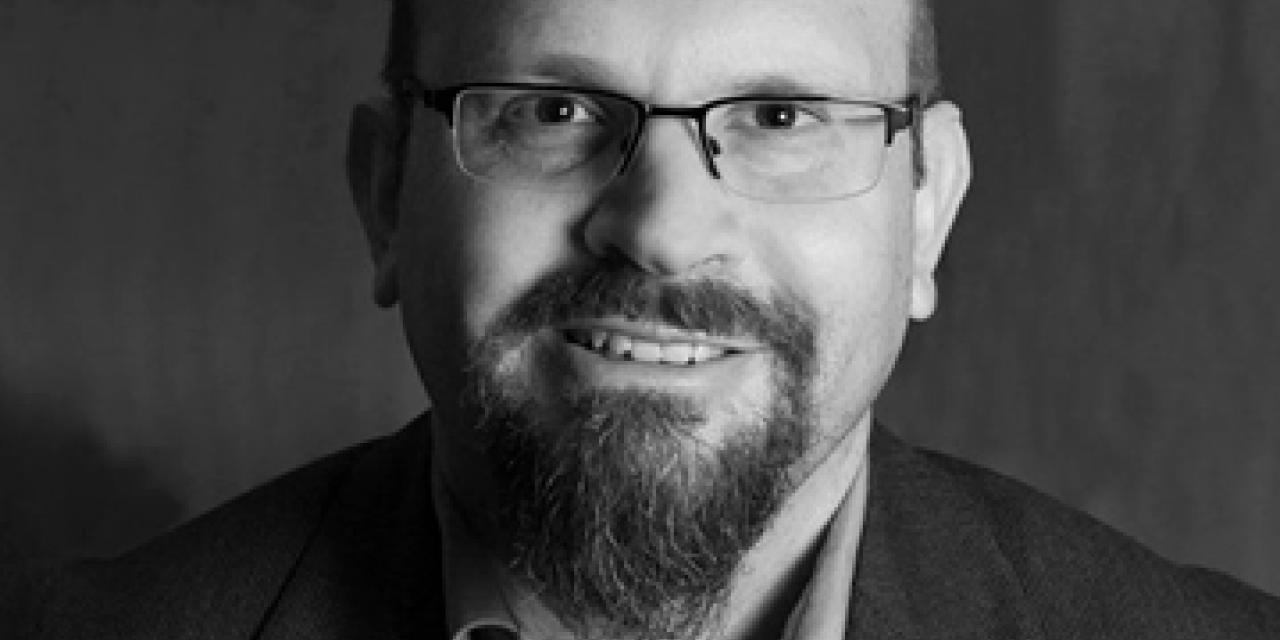Todd Billings is the Gordon H. Girod Research Professor of Reformed Theology at Western Theological Seminary in Holland, Michigan. He is an ordained minister in the Reformed Church in America and has written seven books. Billings lives with multiple myeloma, an incurable blood cancer. In this edited conversation, he discusses his new book, The End of the Christian Life: How Embracing Our Mortality Frees Us to Truly Live.
What’s different and the same between your new book and other books by Christian scholars with cancer, such as Deanna Thompson and Kate Bowler?
Thompson and Bowler do great work, and I refer to both of their books in The End of the Christian Life. Thompson has great material on how trauma and serious illness relate to the Christian faith, and Bowler on the prosperity gospel. But my book is quite different in both topic and genre.
The End of the Christian Life doesn’t focus on my cancer story per se. Rather, it’s on a broader topic: what does Christian hope look like if we embrace our mortal limits, whether we are 15, 50, or 95? I’m immersed in the cancer community, where (someone) dying has become an everyday experience. That immersion is a gift to the book. But the book itself has a much larger scope and will definitely interest people who have not experienced cancer or serious illness. The book is ultimately a biblical and theological exploration of what resurrection hope means. Its cultural analysis helps unveil the cultural idols that lead us away from true resurrection hope.
What is the difference between remembering your death and dying well?
The first is a practice that historic Christian tradition commends for Christians throughout their lives, and the second refers to how one lives one’s final mortal chapter of life.
From Benedict of Nursia to Martin Luther to Jonathan Edwards, various Christian leaders throughout the centuries have commended us to reflect daily upon the fact that we will die (memento mori). This helps us cultivate our love for God and prioritize our life and values before God. It’s rooted in the psalmist’s petition, “Teach us to number our days, that we may gain a heart of wisdom” (Ps. 90:12, NIV). Reflecting daily on our mortality is not just or even mainly for people who are elderly or expecting life to end soon. It is a life-giving, God-centering practice for when we feel vigorous and healthy and are tempted to act as if we are at the center of the universe. Precisely when death seems far from us as a possibility, that’s when remembering death is particularly vital.
Dying well generally refers to entering into life’s final stages in a way that is fitting for us as creatures before our Creator, as children of God. Dying well is not always possible. Death sometimes comes suddenly and unexpectedly. But there is a long tradition in the Christian faith of ars moriendi, the art of dying, where the final stage of life can be an opportunity to trust and bear witness to God. We offer the gifts of family, fortune, and earthly treasures back to the God who gave them, as a witness to Jesus Christ, who has gone before us even in the path of dying and death. Ultimately, dying well draws upon the book of Hebrews, which reminds us that Jesus Christ is our brother in the flesh and a pioneer in our suffering and death. The Christian notion of dying well means being able to rest in the promises of God in Christ. We take comfort that Christ has gone before us; we seek reconciliation and bear witness to the goodness of God as our mortal flesh fails; and we face death’s precipice with hope, patience, and gratitude.
How have you embraced your mortality?
As a patient living with an incurable cancer, I receive ongoing chemotherapy. Feeling daily symptoms gives me a natural opportunity to embrace my mortality. I’ve come to see that this may not feel like a gift, but it can be a gift. Really, anyone who experiences chronic pain or other frequent reminders of our bodies’ limitations can use them as opportunities to shake us out of a false path of prosperity. A great deal in Western culture, especially white, middle-class Western culture, communicates to us that if we follow the Christian rules, then God should give us a long, comfortable life. But that’s a lie. It is biblically ungrounded, and it leads toward hollow, anxious living. Instead, we need to embrace the fact that we are small, mortal creatures who live very short lives . . . and yet, we are deeply beloved by God.
Since you live with daily pain and fatigue and also have young kids at home, how do you manage to keep teaching and writing books?
To keep teaching and writing, I’ve had to make space and time just to be patient with myself with the pain and fatigue. I’ve had to stop comparing my life, or my productivity, with what I could do before chemotherapy. However, I am deeply passionate about what God has called me to do, and I’m blessed with a supportive seminary and a wonderful family. I also have an urgency, precisely from an awareness of my mortality. I recall praying and wondering at points whether I would live long enough to finish this book or to see it published. I’m really grateful for the daily gift of breath.
How has secular culture influenced the way Christians think about death?
Secular culture has influenced how modern Christians think about and approach death in very profound ways. My book deeply probes the question of Christian hope. What do we pray for from God, and how do we focus our hope in God and his promises? I think that frequently we focus many of our hopes and prayers on finding ways to make God useful for accomplishing our own goals. Even when we pray for the sick who are in the hospital, which we should definitely do, we often pray in such a way that we are simply asking for physical repair so they can get back to the long life and middle-class lifestyle that they are “owed.”
These prayers may show that we have bought into a false view of abundant life. The extension of life through healing is a good gift to be celebrated. But somehow we’ve missed out on what is really central: that abundant life in Christ is not measured in years. True Christian hope is not for another five or ten or fifteen years of life, or even healing from a particular illness, though God is free to do that. True Christian hope is centered in Jesus Christ, who will come again to judge the whole creation, to shake this fallen world until it is set right.
In this new creation, only the true King will reign, and God will dwell in fullness with his creation. And resurrection in Christ is not life extension, but a new embodied existence in Christ that will not decay. This is the Grand Canyon of Christian hope! Yet in our worship, prayer, and much of our Christian lives, we often assume that the Christian life is basically about us, and about us succeeding or living in victory, and that heaven will be like that as well. It’s a terrible loss—so much duller and more disenchanting than the center of Christian hope!
How do you hope that church leaders or laypeople will use your book?
The End of the Christian Life is ideal for study in small groups in churches or with a group of elders. In response to the stories I’ve heard of congregations using it for study, I’m working with my colleague Rev. Katlyn DeVries to develop a set of resources for using the book as a Lenten study (released in January 2021). Though this book is more a journey of discovery than a book of “techniques,” it is still embodied and practical. We’ve missed so much about Scripture because of our death-denying cultural blinders.
Can you say more about “our death-denying cultural blinders”?
In the book’s first chapter, I frame how, from an Old Testament standpoint, biological life and biological death are less primary than the more fundamental distinction between life in the pit and life in the temple. The Old Testament describes life in the pit as Sheol, away from God’s presence. It describes life in the temple as life itself since it is in the presence of God. That’s actually the true polarity that should animate our lives. Biological death is not the worst thing that can happen to us. The worst thing is to be in the pit, in a place that seems abandoned by God and others, far from God’s presence. And yet Christ, who is the temple in his person, actually comes to Sheol and meets us there in the pit. In so many ways, we need to rediscover the true geography of the Christian life. We need to reorient ourselves according to the pit and the Temple Mount rather than reduce our Christianity to a tool to get what we want, such as success or life extension.
This is definitely not a morbid book, and readers have confirmed that. I want readers to come away with a much stronger sense of God’s rich and deep wisdom in scripture as it relates to the gift of our mortal life. And I believe that recovering a more fulsome sense of what it means to be mortal before God is a path of joy and lament, a path for enlarging our hearts in grateful awe of God’s work in Christ. The Grand Canyon of Christian hope is when the King of kings returns to shake this aching cosmos and rule in righteousness and covenant fellowship.
LEARN MORE
Watch a brief trailer or read Todd Billings’s article in Christianity Today (CT) about his new book, The End of the Christian Life: How Embracing Our Mortality Frees Us to Truly Live. Listen to his podcast series on that book. Check out Billings’s other books. This CT devotional says that the coronavirus can help us remember that we are mortal. The devotional suggests watching this ballet piece, choreographed by Robert Bondara and set to the song “Verses” by Ólafur Arnalds and Alice Sara Ott.

